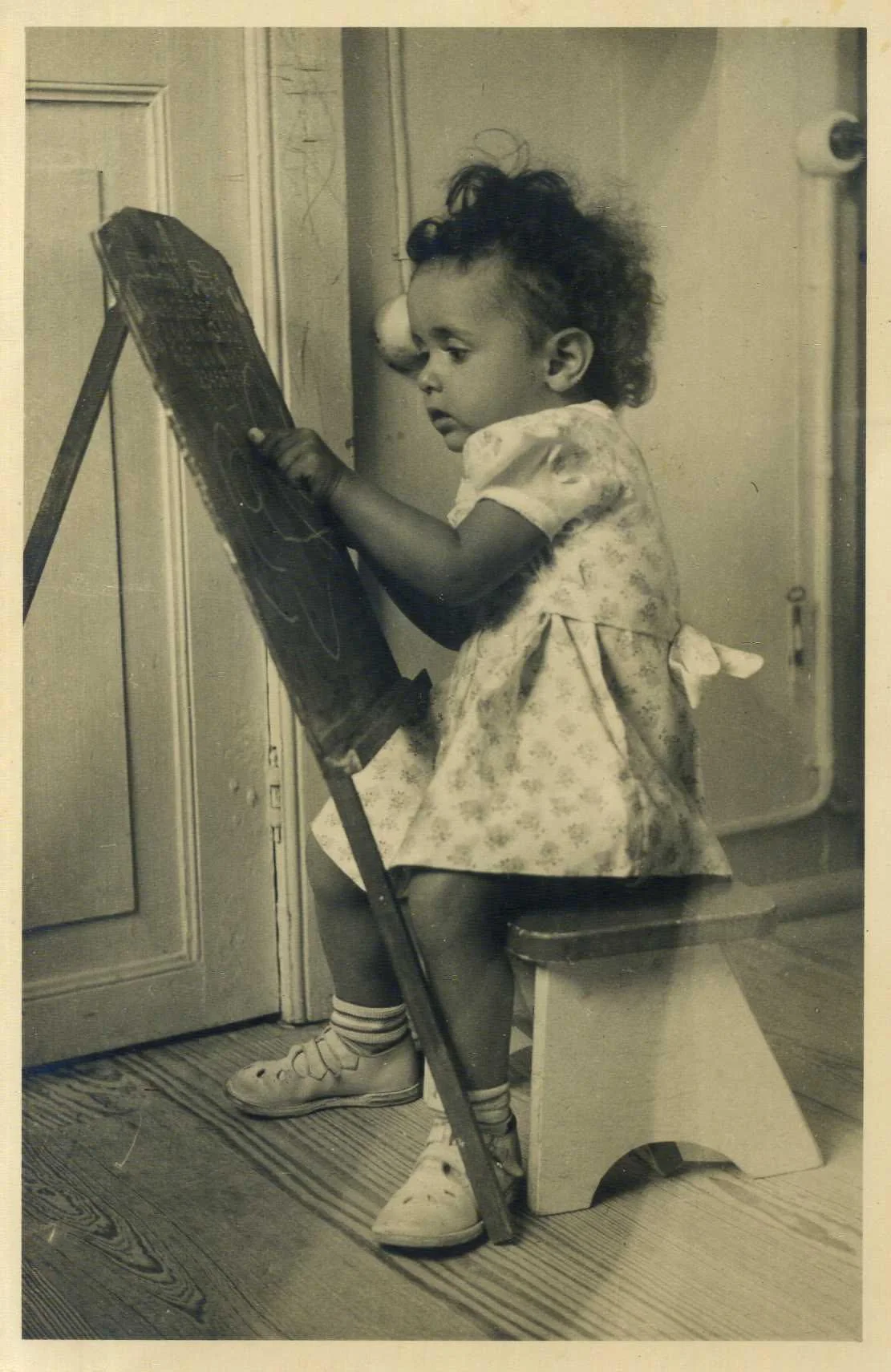WRITER
I always imagined myself a writer. At the age of three I was already writing my name on the blackboard (left handed, just like my mother). Soon I was sewing little books out of discarded paper that I collected from the bins outside a printing press, and writing little stories and poems, always accompanied by my drawings.
The writer Sini van Iterson, who was also a friend of the family, became my role model, inspiring me with her adventure stories in Dutch, 'for older boys', that took place in the ruins of mysterious old plantation houses on the island.
Here is another excerpt from my book House without Doors, my fictionalized memoir in the voice of the 12-year-old Mira. I have changed all the names and added a few new characters and events that did not really happen but could have.
In the following passage, Hannie is the writer Sientje van Iterson, who also wrote scripts for my father's early films, some of which were filmed at the Landhuis of Brievengat that was still abandoned at the time.
(...) One of the women who came to read to Didachi was Hannie. Hannie was a writer herself. She had come from Holland after the war, together with her daughter Tineke who is a little older than I. Hannie did not have a husband. She was not at all like the other women on the island. In the mornings she worked in an office and then she took care of Tineke all by herself without the help of a yaya, and in the evenings she wrote exciting adventure stories for children.
Hardly any of the other women I know has a work of her own. There is only Tia Dora, who started to teach Spanish after her husband died, and some of the unmarried women help out in their father's stores. But when a woman gets married and has children, she always stays home to take care of the house and to supervise the servants. And so Mami, whose beautiful paintings are all over the house, stopped doing her art when she and Papi got married.
But Hannie was different. Hannie's adventures take place in the ruins of the old plantation houses on the island, in many places where I have never been. There is the plantation of Oostpunt, a plantation that covers the whole eastern end of the island. No one is allowed to visit it because it is private property. There is a big gate that is always kept locked and is guarded by fierce watchdogs and armed watchmen. But I always knew that Hannie could go through any barred gate and I was sure she had really been there, braving her way past the dogs and the armed watchmen.
No, Hannie was not afraid of going on dangerous expeditions to explore the places she wrote about. I was sure she had actually seen the smugglers at the ruins of the abandoned plantation house and had dared to walk up to the haunted Devil's Cliff that rose ominously above the transparent waters of the White Lagoon.
(...)
Then one day, Hannie got married and left the island to live in Colombia, and no longer wrote books about the island – only about robbers and cowboys in the Colombian plains. And of course, she took Tineke to Colombia with her. I was very hurt to lose my best friend. But soon enough, I realized that I love writing letters, long, long letters, and I would tell Tineke everything that I thought and did, the way I write in my diary. Perhaps I told her more in my letters than I would tell her when we played together. And I even confessed to her that I want to be a writer when I grow up. Just like her mother.
***


